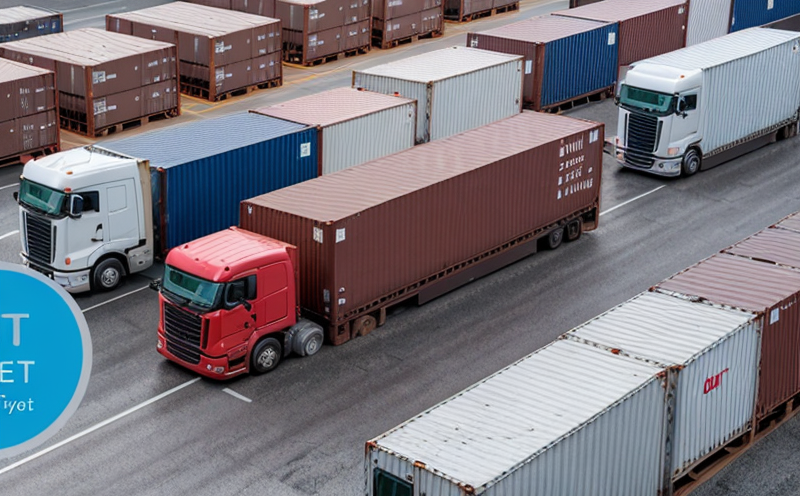
-
Transportation and Logistics Certification-
Certification in Technology and Innovation for Logistics-
IoT (Internet of Things) Certification in Logistics
We provide comprehensive solutions designed to help our clients mitigate risks, enhance performance, and excel in key areas such as quality, health & safety, environmental sustainability, and social responsibility.
Discover
For many years, our organization has been operating successfully, boasting modern laboratories that meet international standards. These laboratories are equipped with the latest technology devices and equipment, and we have built a strong team of experienced and trained personnel to operate them.
DiscoverWelcome to Eurolab, your partner in pioneering solutions that encompass every facet of life. We are committed to delivering comprehensive Assurance, Testing, Inspection, and Certification services, empowering our global clientele with the ultimate confidence in their products and processes.
Discover
-
Transportation and Logistics Certification-
Certification in Technology and Innovation for Logistics-
IoT (Internet of Things) Certification in LogisticsThe Growing Importance of IoT Certification in Logistics
In todays fast-paced business environment, logistics companies are under pressure to optimize their supply chain operations, reduce costs, and enhance customer satisfaction. The Internet of Things (IoT) has emerged as a key enabler of these goals, by connecting physical devices, sensors, and software applications to provide real-time visibility, monitoring, and control over logistics operations.
However, with the increasing adoption of IoT technology in logistics, there is a growing need for professionals to acquire specialized knowledge and skills to manage, implement, and maintain these complex systems. This is where IoT certification comes into play. In this article, we will delve into the world of IoT certification in logistics, its importance, benefits, and provide answers to frequently asked questions.
What is IoT Certification?
IoT certification is a process that verifies an individuals knowledge and skills in designing, implementing, and managing IoT-based solutions for logistics operations. It encompasses various domains such as network security, device management, data analytics, and communication protocols. The goal of IoT certification is to ensure that professionals have the necessary expertise to handle the complexities of IoT technology and make informed decisions about its adoption.
Benefits of IoT Certification in Logistics
Improved Efficiency: IoT certification enables logistics companies to optimize their operations by leveraging real-time data from sensors and devices. This leads to improved supply chain visibility, reduced transportation costs, and enhanced customer satisfaction.
Enhanced Security: Certified professionals understand the importance of securing IoT networks and devices, which reduces the risk of cyber-attacks and protects sensitive data.
Increased Accuracy: IoT certification helps logistics companies to automate manual processes, reduce errors, and improve inventory management. This leads to increased accuracy and reduced costs associated with incorrect or incomplete information.
Key Domains Covered in IoT Certification
IoT certification programs typically cover a range of key domains, including:

Food Safety and Testing
Food Safety and Testing: Ensuring the Quality of Our Food As consumers, we expect our food to be sa...

Automotive Compliance and Certification
Automotive Compliance and Certification: Ensuring Safety and Efficiency The automotive industry is ...

Cosmetic Product Testing
The Complex World of Cosmetic Product Testing The cosmetics industry is a multi-billion-dollar ma...

Chemical Safety and Certification
Chemical safety and certification are critical in ensuring the safe management of products and proce...

NEBS and Telecommunication Standards
Network Equipment Building System (NEBS) and Telecommunication Standards The Network Equipment Bu...

Environmental Simulation Testing
Environmental Simulation Testing: A Comprehensive Guide In todays world, where technology is rapidl...

Railway Industry Compliance
Railway Industry Compliance: Ensuring Safety and Efficiency The railway industry is a critical comp...

Consumer Product Safety
Consumer Product Safety: Protecting Consumers from Harmful Products As a consumer, you have the rig...

Pressure Vessels and Installations Testing
Pressure Vessels and Installations Testing Pressure vessels are a critical component of various ind...

Agricultural Equipment Certification
Agricultural equipment certification is a process that ensures agricultural machinery meets specific...

Electromechanical Safety Certification
Electromechanical Safety Certification: Ensuring Compliance and Protecting Lives In todays intercon...

Construction and Engineering Compliance
Construction and Engineering Compliance: Ensuring Safety, Quality, and Regulatory Adherence In the ...

Lighting and Optical Device Testing
Lighting and Optical Device Testing: Ensuring Performance and Safety Lighting and optical devices a...

MDR Testing and Compliance
MDR Testing and Compliance: A Comprehensive Guide The Medical Device Regulation (MDR) is a comprehe...

Environmental Impact Assessment
Environmental Impact Assessment: A Comprehensive Guide Environmental Impact Assessment (EIA) is a c...

Product and Retail Standards
Product and Retail Standards: Ensuring Quality and Safety for Consumers In todays competitive marke...

Aviation and Aerospace Testing
Aviation and Aerospace Testing: Ensuring Safety and Efficiency The aviation and aerospace industr...

Fire Safety and Prevention Standards
Fire Safety and Prevention Standards: Protecting Lives and Property Fire safety and prevention stan...

Transportation and Logistics Certification
Transportation and Logistics Certification: A Comprehensive Guide The transportation and logistics ...

Industrial Equipment Certification
Industrial equipment certification is a critical process that ensures industrial equipment meets spe...

Renewable Energy Testing and Standards
Renewable Energy Testing and Standards: Ensuring a Sustainable Future The world is rapidly transiti...

Trade and Government Regulations
Trade and government regulations play a vital role in shaping the global economy. These regulations ...

Battery Testing and Safety
Battery Testing and Safety: A Comprehensive Guide As technology continues to advance, battery-power...

Electrical and Electromagnetic Testing
Electrical and Electromagnetic Testing: A Comprehensive Guide Introduction Electrical and electrom...

Hospitality and Tourism Certification
Hospitality and Tourism Certification: Unlocking Opportunities in the Industry The hospitality and ...

Military Equipment Standards
Military Equipment Standards: Ensuring Effectiveness and Safety The use of military equipment is a ...

IT and Data Center Certification
IT and Data Center Certification: Understanding the Importance and Benefits The field of Informatio...

Pharmaceutical Compliance
Pharmaceutical compliance refers to the adherence of pharmaceutical companies and organizations to l...

Healthcare and Medical Devices
The Evolution of Healthcare and Medical Devices: Trends, Innovations, and Challenges The healthcare...

Energy and Sustainability Standards
In today’s rapidly evolving world, businesses face increasing pressure to meet global energy a...